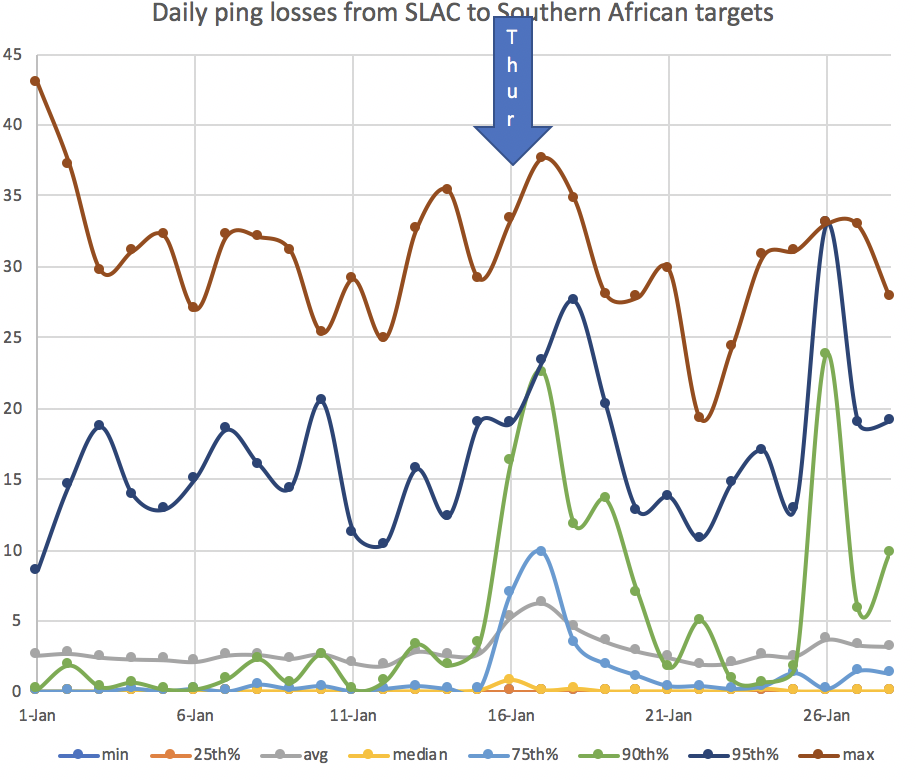Report
See https://spectrum.ieee.org/tech-talk/telecom/internet/undersea-cable-repairs-south-africa for a very full discussion, also https://mybroadband.co.za/news/internet/336416-how-south-africas-internet-survived-cable-breaks.html and the aftermath at https://mybroadband.co.za/news/internet/336426-slow-internet-speeds-in-south-africa-at-least-12-more-days.html.
...
One can also look at the various statistics for both Average RTT, losses and minimum RTTs, see below (the spreadsheet is seen here). The Average and Losses are heavily influenced by the congestion. The minimum is mainly influenced by the route change or change in the distance of the cable route. Also note that the impact on the minimum RTT is not seen until Jan 17th since som oif some of the PingER January 16 measurements were made before the change of cables used. It is also worth noting as reported in ieee "TENET restored its overseas connections by switching to an alternative 80-gigabit-per-second service on the SEACOM and EASSy cables on Africa's east coast. "The latency ... increased due to this failover, but there are currently no reported issues of this being detrimental to connectivity," a representative of TENET said on 30 January."
Traceroute
The route measured 19:00 hrs 1/28/2020 PST from SLAC to South Africa goes East across the US via Chicago, Washington to London and thence S. Africa:
...


